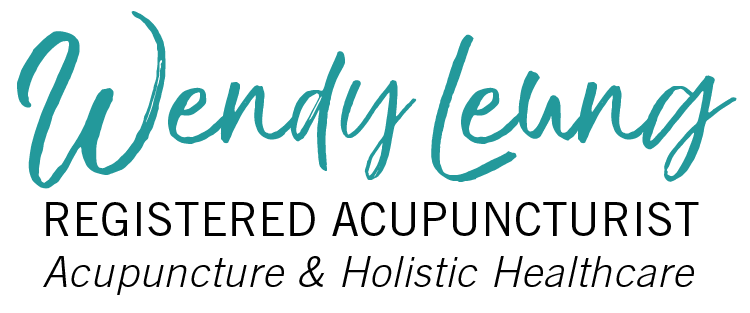FAQ
WHAT CAN ACUPUNCTURE TREAT?
Acupuncture can treat a variety of health ailments from minor complaints such as a common cold to larger issues such as stroke recovery. Some common concerns include:
| pain | acute or chronic injury, headache, sciatica, TMJ, shingles |
| emotions | stress, anxiety, depression, mood swings |
| digestive | heartburn, nausea, constipation, diarrhea, Irritable Bowel Syndrome (IBS), Crohn’s, colitis |
| women’s health | painful menstrual cramps, UTIs, menopause, infertility, pregnancy |
| men’s health | impotence, erectile dysfunction, prostatitis |
| sleep disorders | insomnia, poor sleep quality, sleep apnea |
| autoimmune | lupus, fibromyalgia |
| other | high blood pressure, common cold, asthma, seasonal allergies, smoking cessation |
The practice of acupuncture can be traced back to around 6000 BCE in Ancient China and it is only very recently by comparison that the western modern medical world has turned its attention to study what has long been used as an effective and integrative healing tool in other cultures around the world. In 2003, The World Health Organization published a list of conditions that they consider effectively treated by acupuncture and as more scientific studies are published, that list will no doubt grow.
HOW DOES ACUPUNCTURE WORK?
It’s not magic, but it may seem a little like it if you are unfamiliar with the mechanisms behind Traditional Chinese Medicine (TCM) diagnosis and practice. TCM and Japanese acupuncture are based on an integrative model that considers all aspects of the body to be interconnected, from internal organs to the outer arms and legs, the skin, the senses, and from physical body to mental thoughts and emotions.
A healthy body is considered to be in balance and able to self-regulate. Pain, sickness, stress, emotional upset or poor diet can cause an imbalance, disrupting the body’s normal function. By stimulating the appropriate points and channels (pathways) on the body’s surface, we can instigate change both in the immediate area as well as in other connected parts of the body to bring it back to a state of health.
HOW MANY TREATMENTS ARE GENERALLY NEEDED?
Every case is different and a course of treatment depends on whether the ailment is acute or chronic as well as on your overall health. Because the effects of acupuncture are cumulative, frequency is key to progress and long-term change. Generally clients feel some relief after the first treatment and acute cases can respond well within a few treatments twice a week, whereas chronic cases can take up to 10 or 12 regular sessions to see consistent and lasting change.
BUT I’M AFRAID OF NEEDLES!
You’re not alone. Many first-time clients are apprehensive about needles, but our tools are almost as fine as a single strand of hair, unlike others used for bloodwork or vaccinations. I practice a very gentle but effective style of acupuncture and I don’t believe in “no pain = no gain”; while you are meant to experience some sensation during treatment, the goal is not to cause your body to tense and guard, rather to open up and relax in response to treatment. Clients are generally lying down during their sessions so they can comfortably relax and focus on the healing benefits of the treatment.
HAVE MORE QUESTIONS?
Still not sure if acupuncture is right for you? Email or call me with any questions before booking.
Or read on to learn more about TCM!
Have a question?
FAQ
WHAT CAN ACUPUNCTURE TREAT?
Acupuncture can treat a variety of health ailments from minor complaints such as a common cold to larger issues such as stroke recovery. Some common concerns include:
| pain | acute or chronic injury, headache, sciatica, TMJ, shingles |
| emotions | stress, anxiety, depression, mood swings |
| digestive | heartburn, nausea, constipation, diarrhea, Irritable Bowel Syndrome (IBS), Crohn’s, colitis |
| women’s health | painful menstrual cramps, UTIs, menopause, infertility, pregnancy |
| men’s health | impotence, erectile dysfunction, prostatitis |
| sleep disorders | insomnia, poor sleep quality, sleep apnea |
| autoimmune | lupus, fibromyalgia |
| other | high blood pressure, common cold, asthma, seasonal allergies, smoking cessation |
The practice of acupuncture can be traced back to around 6000 BCE in Ancient China and it is only very recently by comparison that the western modern medical world has turned its attention to study what has long been used as an effective and integrative healing tool in other cultures around the world. In 2003, The World Health Organization published a list of conditions that they consider effectively treated by acupuncture and as more scientific studies are published, that list will no doubt grow.
HOW DOES ACUPUNCTURE WORK?
A healthy body is considered to be in balance and able to self-regulate. Pain, sickness, stress, emotional upset or poor diet can cause an imbalance, disrupting the body’s normal function. By stimulating the appropriate points and channels (pathways) on the body’s surface, we can instigate change both in the immediate area as well as in other connected parts of the body to bring it back to a state of health.
HOW MANY TREATMENTS ARE GENERALLY NEEDED?
BUT I’M AFRAID OF NEEDLES!
I practice a very gentle but effective style of acupuncture and I don’t believe in “no pain = no gain”; while you are meant to experience some sensation during treatment, the goal is not to cause your body to tense and guard, rather to open up and relax in response to treatment. Clients are generally lying down during their sessions so they can comfortably relax and focus on the healing benefits of the treatment.
HAVE MORE QUESTIONS?
Still not sure if acupuncture is right for you? Email or call me with any questions before booking.
Or read on to learn more about TCM!



